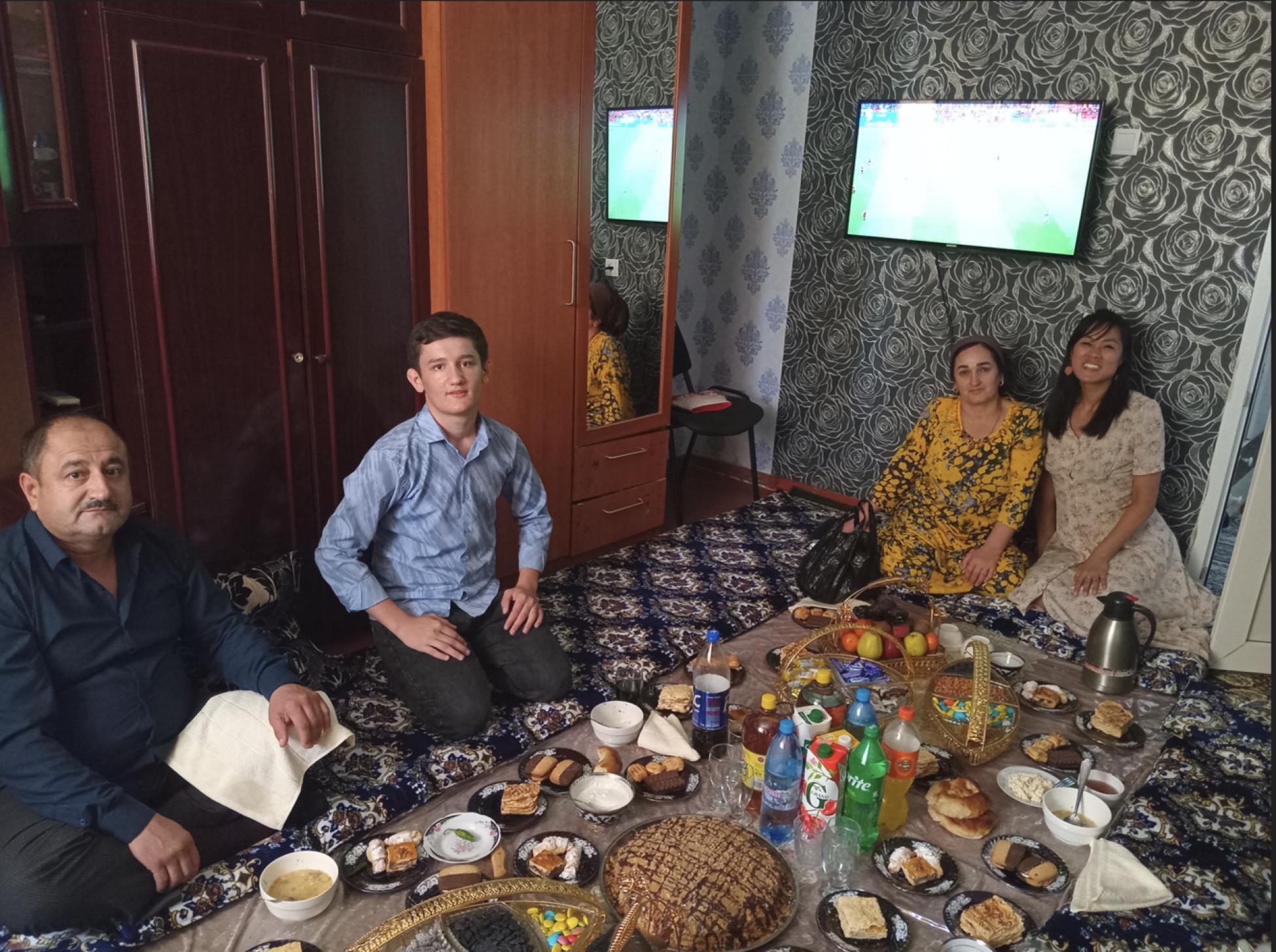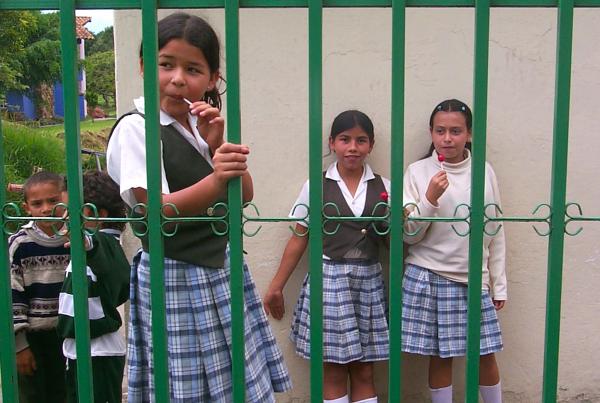As anyone who has lived in a predominantly Muslim country before can attest to, there are two main Islamic holidays in the year. The first Eid, Eid al-Fitr, comes at the end of the fasting month of Ramadan. The second Eid, Eid al-Adha, commemorates the Prophet Ibrahim’s faith in God and willingness to sacrifice his son. While I’d been through many Eids in my time overseas, this one was different.
I had been invited to celebrate Eid Qurban, as the Tajiks call it, in a nearby town of Vahdat, roughly 30 minutes from Dushanbe where I live. After a rude awakening by the neighbourhood kids pounding on my door for sweets, as per tradition, I was up and at the taxi stand to head over.
In a traditional Tajik home
My colleague Ahmad and his wife Aziza picked me up and brought me to their home where before we could enter the gate, we were intercepted by a neighbour. He beckoned me around the corner, and curiously, I followed the couple to find his two sons in the midst of the most typical Eid tradition—the slaughter of a sheep. The head had already been removed from the body, and the two young men were trying to hoist the carcass onto a hook hanging from a tree to drain the blood more quickly.
“Don’t worry, when they finish later and cook it, they’ll invite us over.” Aziza called me back to their home, and the image of matted bloody fur was immediately replaced by a lush green courtyard. Typical Tajik homes (havlis) have an open space in between the different buildings of their home where the children can play, or in this case, they can grow apple and cherry trees, strawberries, potatoes, and carrots.
Inside their main hosting room, we plopped down on the kurpachas (long cushions) around a full dasterkhan (table setting on the ground) packed with sweets, pastries and cake. I spotted the fresh fruit from the garden scattered around on small plates, and deliberated between various fried dough snacks, cupcakes with cream, and some chocolate-covered dates before settling on a small slice of Napoleon cake with tea.
While I munched slowly, Ahmad caught me up on his family woes and father’s recent stroke. With the state of public healthcare in Tajikistan, it was far more costly (200 somoni a night and 500 somoni in medication, totaling approximately $66 a day) to go with private healthcare but worth it if his father could recover.
Family visits first
“Enough depressing talk! Let’s go see my stepmother, she’s bored alone while my father is in the hospital.” Ahmad drove us less than one kilometre to his parents' home, where he left us to spend the day with his father at the hospital and Aziza and I ducked into the courtyard, passing enormous grapes hanging off of a wooden trellis. The elderly stepmother immediately called a family member to bring the two of us some soup, and reminding myself not to eat too much, I enjoyed some hearty vegetable soup with RC Cola. I noticed that the stepmother’s brother wouldn’t enter the hosting room, and I asked Aziza about it. “You know it’s tradition for men and women to sit separately, if we women are in here, he will wait outside.”
Only a few minutes passed before I heard a number of men’s voices outside, and before I could ask, Aziza signalled for me to get up again. The soup still warm in my belly, I stretched and emerged back out into the bright light to find Ahmad’s brother and son, with their car waiting to bring us to their home. In contrast with the two havlis, their family lived in an old Soviet-style apartment building with narrow stone stairs and a more labyrinth-like set up of interconnected rooms.
The eating marathon continued. Sugar cookies, five types of nuts, and a massive bowl of fruit shone on golden bowls around fresh bread, sour cream, and Snickers bars. I noted, with interest, that not all families abided by the gender segregation policy, as the brother’s family, male cousin and his four sons poured into the room a few minutes later to join us. It seemed almost as if everyone just knew who was hosting, and where there would be food hot and ready to be eaten.
Fresh sheep meat
As the younger boys got lost in the football match playing on the TV screen, I was grateful for Aziza’s head nod letting me know that we had stayed a polite amount of time and could leave. The families were so gracious and kind, but I couldn’t understand very much of what they were saying, and my increasingly round belly was asking for an afternoon nap session.
Little did I know, the main meal was about to come. When we neared Aziza’s home, my vision of a brief nap was shattered when she turned away from her gate and towards her neighbour’s home. “They’ve finished cooking the sheep now! Come on, you’ll enjoy it!”
We entered the largest hosting room yet, with two tables assembled long-wise and packed with golden platter upon golden platter. My stomach turned at the thought of more food, but my eyes couldn’t stop taking it in. Vermicelli noodle salad, fruit tarts, Caesar salad, Russian mayonnaise-drenched salad, and fresh vegetables covered the tablecloth. The neighbour’s daughter-in-law came in multiple times with three different cuts of meat, including the recently deceased sheep I saw that morning.
Aziza’s discomfort at sitting with men in the same room was more visible this time, and I wasn’t surprised when she glanced at her watch shortly after another slew of male relatives entered and made eye contact with me. I nodded, and followed her lead, but was again diverted from her door in another direction. Aziza laughed at my hesitation and incredulous expression, “It’s the afternoon now, our turn. The men go with men in the mornings, and the neighbourhood women visit with neighbourhood women in the afternoon!”
With a weary smile, I trailed behind her towards the next door havli to find no less than 10 women already seated and chattering away. At first, Aziza tried to translate and keep me looped in (“That’s the new bride, she is from Khujand.” “They’re complaining about the electricity shortages and how much they still have to pay. “Next we’ll go to that woman’s house, then that one, then mine…”) but soon, the stifling late afternoon heat and fullness of my stomach clouded my mind. I resigned myself to my fate of never-ending fruit platters, sweet pastries, and vegetable soup, grateful that this feast only happens twice a year.
Add this article to your reading list




